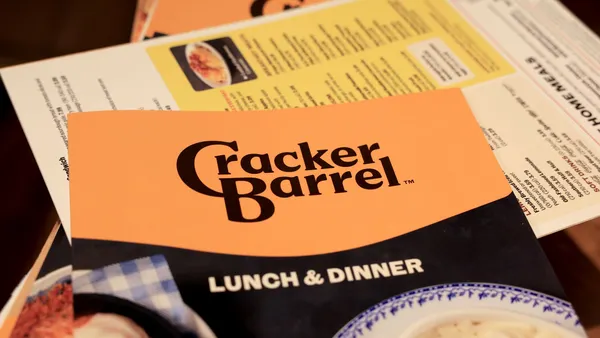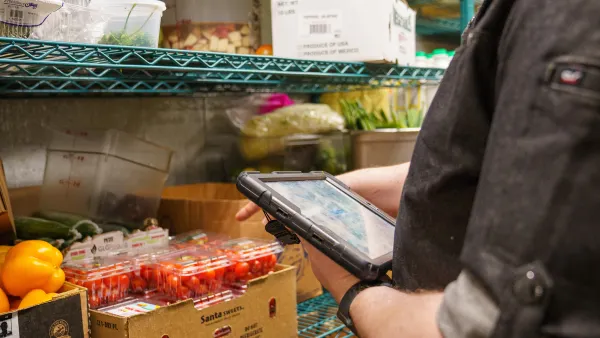Dive Brief:
- Yelp laid off 1,000 employees and furloughed 1,100 Thursday, co-founder and CEO Jeremy Stoppelman wrote in a letter to employees. The reservation platform will also reduce hours for other employees. Employees that are laid off will receive severance pay and reimbursement for up to three months of health insurance coverage. Employees that are furloughed will be placed on unpaid leave but will retain the majority of their benefits, as well as two weeks of additional pay. Employees with reduced hours will retain their benefits.
- The decision comes after Yelp reduced server costs, deprioritized projects and retooled the company's budget for survival during the novel coronavirus crisis, rather than growth. All executives have taken 20% to 30% pay cuts, and Stoppelman is forgoing his salary and will not vest any of his 2020 stock awards for the rest of the year. Since March 10, consumer interest in restaurants plummeted 64%. Page views for the services category, which generates a majority of the company's revenue, was down 40% last month, according to an SEC filing.
- "These extreme actions wouldn’t make sense in normal times. We entered this crisis with a strong cash position, and had built serious revenue momentum across all categories in the last year," Stoppelman said. "What led to this decision to part with employees, even temporarily, was not the present or near past, but where the data indicate we are headed. With revenue levels expected to be substantially lower, Yelp must make these severe cost reductions to sustain itself as a business, which I fully understand will negatively impact so many of my colleagues and friends."
Dive Insight:
The coronavirus crisis has begun to cripple restaurant-adjacent platforms.
On Tuesday, Toast said it cut about half of its staff, around 1,300 employees, through layoffs and furloughs. By comparison, Yelp's layoffs and furloughs impact about 35% of its staff based on its December headcount of 5,950, according to an SEC filing. Yelp's severance and benefits for both laid off and furloughed employees will cost the company $8 million to $10 million, according to a regulatory filing.
Like Toast, Yelp had been performing well before the pandemic reached American soil. But it's hit several bumps in the road since trying to weather the new economic climate.
The brand also faced swift backlash, for example, when its automatically rolled out GoFundMe pages seeking $2,500 in donations for independent restaurants on its platform — a move it made without restaurant consent. Restaurateurs took to Twitter to voice their frustration over the practice, arguing that making their brands look like charity cases could be bad for their brand perception. Others pointed out that these fundraising pages could draw donations away from restaurants' independent fundraising efforts, which they could benefit from directly.
Yelp quickly paused the automatic rollout, but the move may have burned bridges with restaurant partners. It was an unfortunate miscalculation — the initiative was geared toward helping its member restaurants, but fell into a bad habit that many restaurant-adjacent platforms have developed: not involving restaurants in tech that impacts them.
These stumbling blocks are a one-two punch for Yelp, which in all likelihood is staring down the barrel of further financial challenges. Around 97% of restaurants have closed their dining rooms due to state and municipal mandates, and transactions slipped 42% during the week ending March 29, according to NPD Group data emailed to Restaurant Dive. As U.S. COVID-19 cases grow by the day, these numbers will only worsen, and continue to dry up Yelp's site traffic.












